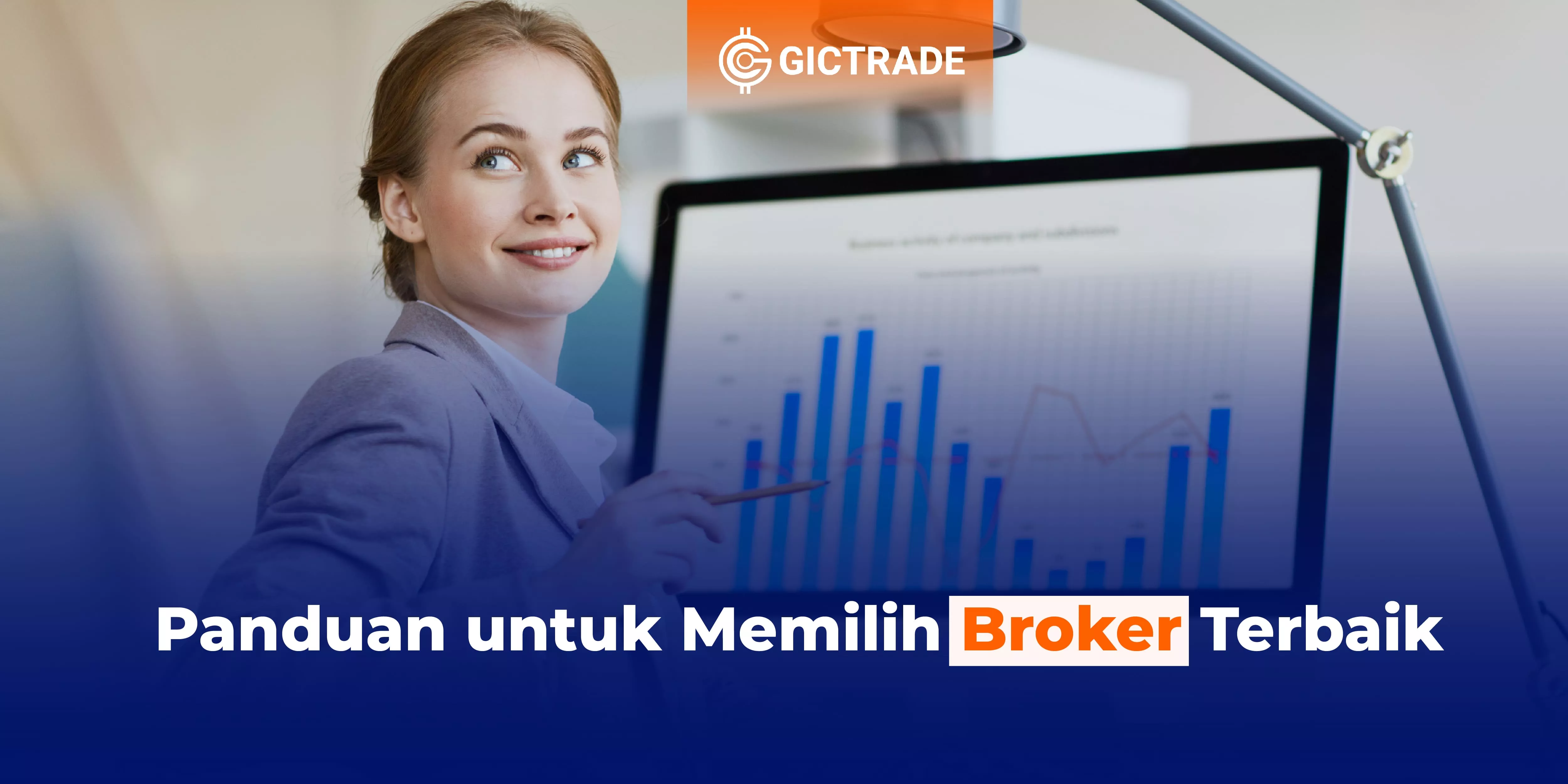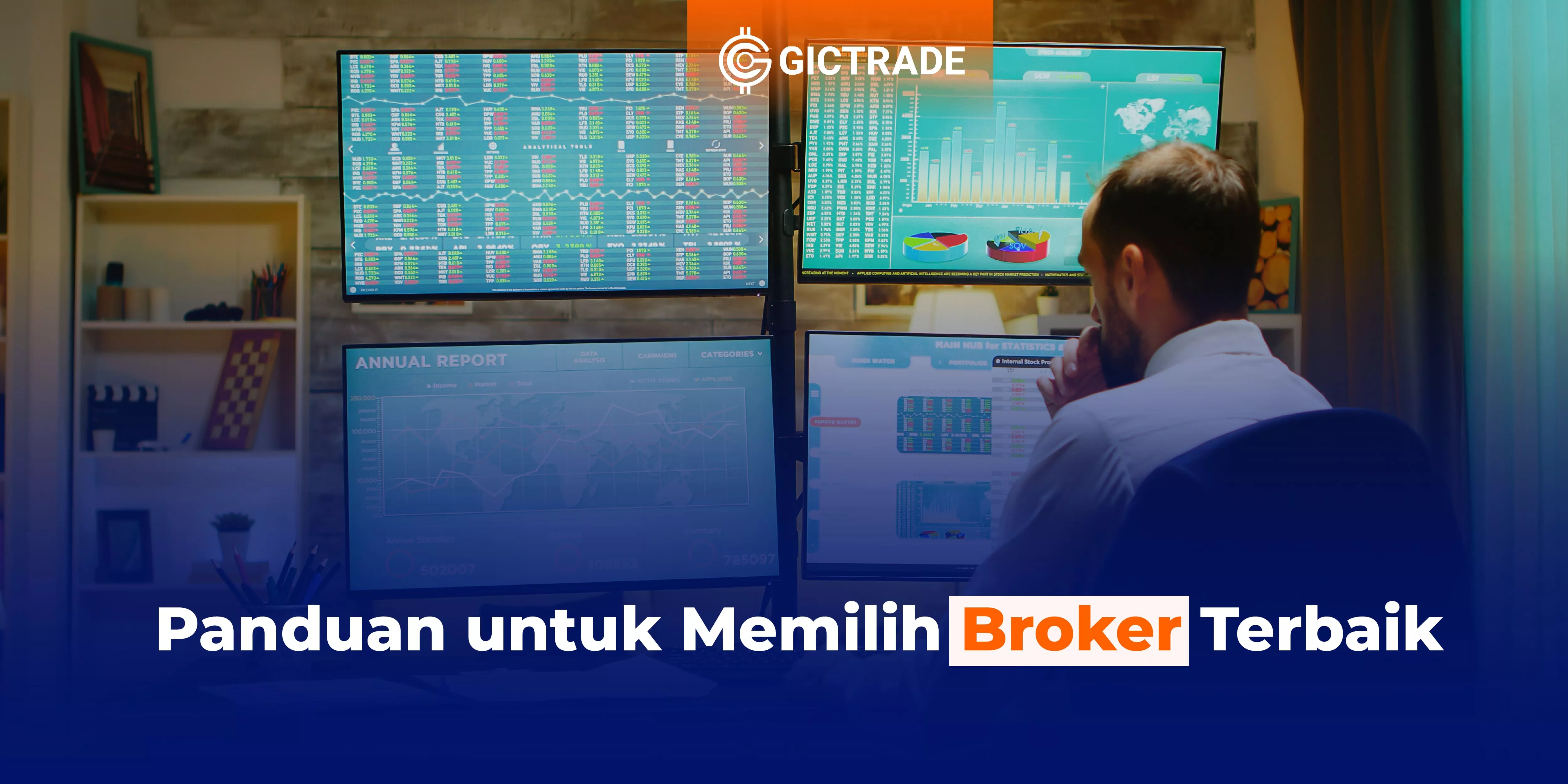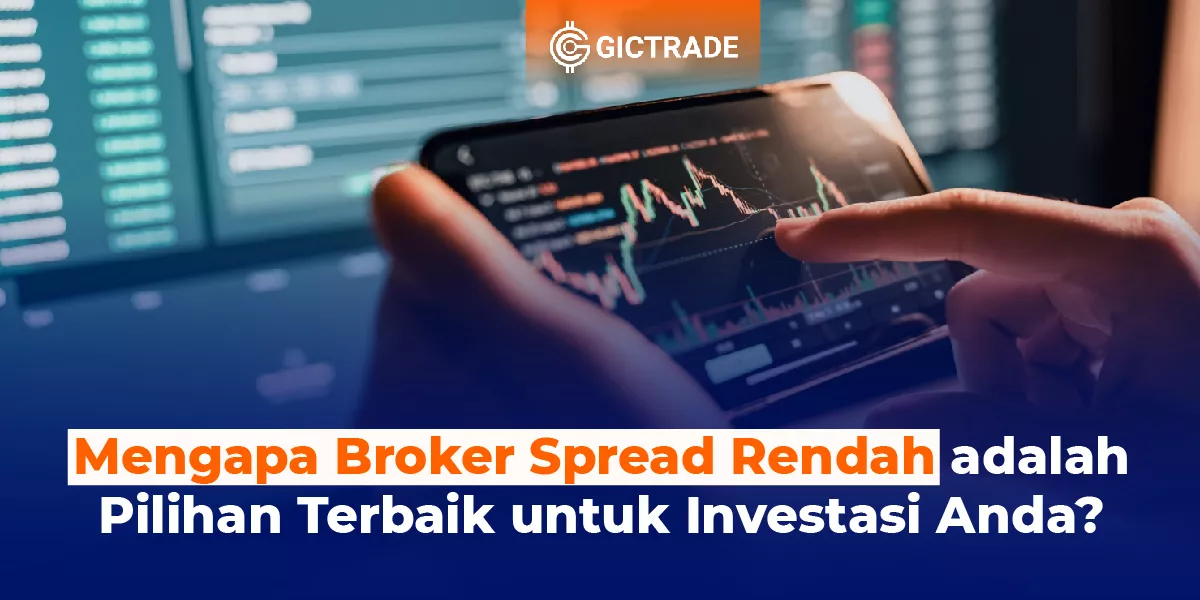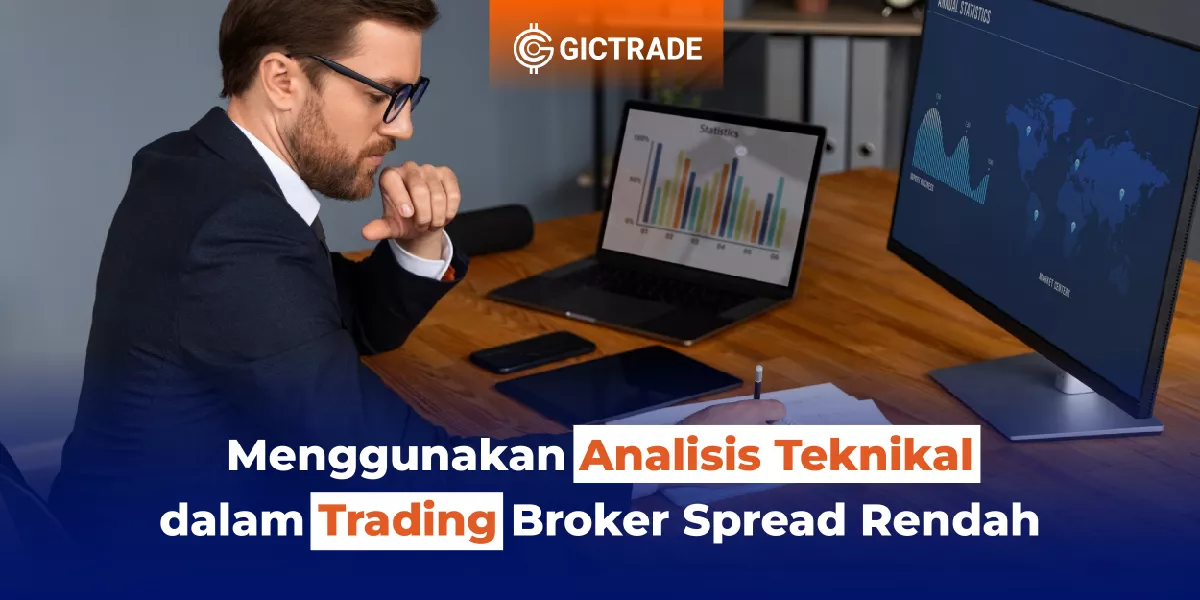Guide to Choosing a Forex Broker - Welcome to this guide that will help you choose the best broker in Indonesia. When choosing a broker, there are many factors to consider, from reliability to transaction costs. In this guide, we will cover in detail everything you need to know before making this important decision. So, let's get started!
What is a Broker and Why Choose the Best?
Before we go any further, let’s understand what a broker is. A broker is an intermediary between a trader or investor and the financial markets. They provide a trading platform that allows you to buy and sell financial instruments such as stocks, currencies, commodities, and more.

Choosing the best broker is very important because this decision will affect your overall trading experience. A good broker will provide a reliable platform, competitive transaction costs, fast execution, responsive customer support, and a variety of trading instruments. By choosing the best broker, you can increase your chances of success in the financial markets.
1. Broker Reliability
Reliability is one of the main factors to consider when choosing the best broker. You need to be sure that your funds are safe and that the broker has a good reputation in the industry. Here are some things you need to check to assess the reliability of a broker:
1.1. Regulasi
Make sure the broker is regulated and supervised by a trusted authority. In Indonesia, the Commodity Futures Trading Regulatory Agency (BAPPEBTI) is the institution that regulates futures trading, including brokers. Choosing a broker regulated by BAPPEBTI will provide additional protection for you as a trader.
You can check the BAPPEBTI website to ensure that the broker you are considering is registered and licensed to operate. In addition, some well-known and respected international regulators are the Financial Conduct Authority (FCA) in the UK, the Securities and Exchange Commission (SEC) in the United States, and the Cyprus Securities and Exchange Commission (CySEC) in Cyprus.
1.2. Reputation and User Reviews
Why is it important to read user reviews before choosing a broker? Because it gives you insight into other people’s experiences with the broker. Look for independent reviews from traders who have used the broker you are considering. You can find these reviews on trading forums, broker review websites, and social media. Also, pay attention to the broker’s general reputation in the industry. Have they been around for a long time and have a large customer base? A good reputation indicates that the broker has been providing good service and is reliable.
2. Transaction Fees
Transaction costs are one of the most important factors in choosing the best broker. These costs can have a significant impact on the profits you make from your trades. There are several types of costs you need to pay attention to:
2.1. Spread
Spread is the difference between the buy and sell price of an asset. It is the main cost in forex and CFD trading. The smaller the spread, the better for you as a trader because it means you can trade at a lower cost.
The best way to compare spreads between brokers is to use a demo account or view live spread data on the broker's website. Make sure you check the spreads for the currency pairs or other assets you trade most often.
2.2. Commission
Some brokers charge additional commissions on top of the spread. This is common in stock and futures trading. Make sure you understand how much commission you will be charged and whether it is competitive compared to other brokers.
2.3. Swap and other fees
Swap is a fee charged if you hold your trading position overnight. This is common in forex trading. Check the swap policy of the broker you are considering and make sure you understand how much it will cost.
Additionally, some brokers may charge other fees such as withdrawal fees, inactivity fees, or other fees. Check your broker’s terms and conditions carefully to ensure that you understand all fees that may be associated with your trades.
3. Trading Platforms and Tools
A trading platform is a tool that you will use every day in your trading activities. It is important to choose a broker that provides a platform that is reliable, intuitive, and has the features you need. Here are some things you need to consider when choosing a trading platform:
3.1. Reliability and Speed of Execution
A trading platform should be able to provide fast and reliable trade execution. Execution speed is a critical factor especially for traders who trade in seconds or minutes. There is nothing more frustrating than missing out on a trading opportunity due to a delay in execution.
You can read user reviews or try a trading platform's demo account to test its reliability and execution speed.
3.2. Easy to Use User Interface
A trading platform should have an intuitive and easy-to-use user interface. This is especially important if you are a beginner trader. You don’t want to spend your precious time figuring out how to use the platform’s basic features.
Try to find out if the broker provides guides or tutorials to help you understand how to use their trading platform. You can also try a demo account to see if the user interface suits your preferences and needs.
3.3. Trading Tools and Features
Some brokers offer additional trading tools and features that can help you make better trading decisions. For example, interactive charts, technical analysis, market news, or risk management tools.
Check what the broker offers and whether these tools are useful for your trading strategy and style. Remember that good trading tools and features can give you an extra edge in a competitive market.
Not familiar with GIC? Let's get acquainted. Unlike other conventional brokerage firms, GIC through the GICTrade platform provides a solution for traders who do not want to be burdened with high trading costs. GICTrade is a peer-to-peer trading platform that brings together traders and market makers.
So, what's so special about GICTrade? As a platform that brings together trader and market makers, you as a prospective customer can certainly choose between the two, namely becoming a trader or a market maker.
GICTrade's role as a transaction venue provider can minimize costs and help maximize profits for traders and market makers as well as create a fair transaction atmosphere and results.
Traders will benefit from no commission fees and swap fees and low spreads due to the presence of market makers as liquidity providers. You can also join the trader community on Telegram GICtrade to ask fellow traders directly about their trading experiences.
Also follow GIC Instagram to get webinar information and various attractive prizes. In addition, on GIC YouTube, traders can also learn trading for free! What are you waiting for? More complete features that fully support you to start investing and trading forex through GIC. Make transactions simpler, safer, and more profitable.
4. Types of Trading Instruments
Every trader has their own preferences in the trading instruments they are interested in. Some traders focus on forex, while others prefer stocks or commodities. It is important to choose a broker that offers the types of trading instruments you are interested in. Here are some trading instruments you might consider:
4.1. Forex
Forex is a foreign exchange market where you can trade currency pairs. If you are interested in forex trading, make sure the broker you choose offers the currency pairs you are interested in and competitive spreads.
4.2. Shares
Stock trading has become popular in recent years. If you want to trade stocks, make sure your broker offers access to the stock exchanges you are interested in. Also check the transaction fees and commissions charged for stock trades.
4.3. Commodities
Commodity trading involves trading raw materials such as oil, gold, silver, or wheat. If you are interested in commodity trading, make sure your broker provides access to the commodity markets you are interested in.
4.4. Cryptocurrency
Cryptocurrency is a popular trading instrument today. If you want to trade cryptocurrencies like Bitcoin or Ethereum, make sure your broker offers the cryptocurrency pairs you are interested in and has a clear policy on the security of crypto assets.
5. Customer Support
Good customer support is essential in running your trading activities. You may need technical assistance, information about your account, or questions about trading instruments. Here are some things you need to check regarding customer support:
5.1. Customer Support Working Hours
Make sure your broker provides customer support during business hours that suit your time zone. You don’t want to encounter technical issues or important questions outside of business hours and not be able to contact the customer support team.
5.2. Communication Methods
Check what communication methods the broker provides. Do they have customer support via phone, email, or live chat? Also, pay attention to the responsiveness of the customer support team. How quickly do they respond to your questions or requests?
5.3. Education and Training Materials
Some brokers provide educational and training materials that are useful for beginner traders. These can be articles, video tutorials, webinars, or seminars. If you are new to trading, consider a broker that provides comprehensive educational resources to help you understand the basic concepts and strategies of trading.
| Also Read : Trading During a Downtrend: Optimizing Profits in the Market |
FAQ (Frequently Asked Questions)
1. What should I look for in choosing the best broker?
When choosing the best broker, look for reliability, competitive transaction costs, good trading platforms, a variety of trading instruments, and good customer support.
2. Are all brokers regulated?
Not all brokers are regulated. However, it is advisable to choose a broker that is regulated by a trusted authority such as BAPPEBTI or a leading international regulator.
3. Do I need to have experience before choosing a broker?
No, you don’t need to have experience before choosing a broker. However, understanding your trading needs and preferences will help you make a better decision.
4. How can I compare transaction costs between brokers?
You can compare transaction costs between brokers by looking at spreads, commissions, and other fees. Read the broker's terms and conditions carefully to understand all costs associated with trading.
5. Can I try the trading platform before choosing a broker?
Yes, many brokers provide demo accounts that allow you to try out their trading platforms without the risk of losing real money. Use the demo account to make sure that the platform suits your preferences.
6. Can I trade all instruments with one broker?
Depending on the broker you choose, some brokers offer access to a variety of trading instruments such as forex, stocks, commodities, and cryptocurrencies. Make sure to check the types of instruments offered by the broker before making a final decision.
Conclusion
Choosing the best broker is an important step in your success as a trader. In this guide, we have covered the factors you need to consider, such as broker reliability, transaction costs, trading platforms, types of trading instruments, and customer support.
Remember that there is no one size fits all when it comes to choosing the best broker. Every trader has different needs and preferences. It is important to do your research, read user reviews, and try out a demo account before making a final decision.
Now you have a comprehensive guide to choosing the best broker. Good luck finding the right broker for you and good luck in your trading!
 Last:
Last: 






